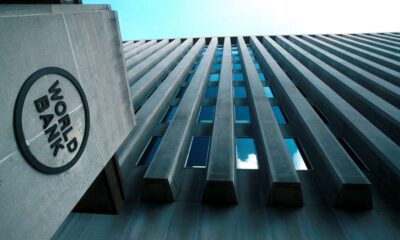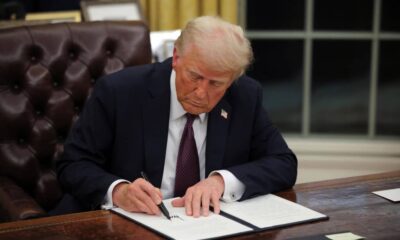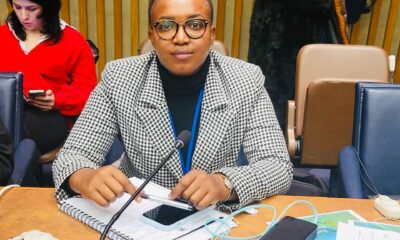Published
1 year agoon
By
Ugdiplomat
Talks between Uganda and Dubai-based Alpha MBM Investments have “intensified” over the construction of a $4 billion refinery, an oil executive has said.
Alpha MBM was earlier picked as the preferred bidder to finance the refinery in the oil city of Hoima, western Uganda with a capacity to process 60,000 barrels daily.
“Those talks are still ongoing, they have intensified. We consider Alpha MBM to be a high potential partner for the development of the Uganda refinery,” said Gilbert Kamuntu, chief commercial officer at the Uganda National Oil Company (Unoc).
“We have been in discussions around how to structure the project and how to implement [it] as soon as possible. Our expectation is that we shall announce an investment decision shortly,” Mr Kamuntu told UAE’s The National on the sidelines of the World Energy Congress.
The Hoima refinery, which will be East Africa’s first major crude processing plant, aims to reduce landlocked Uganda’s dependence on imported petroleum and diesel, which currently pass through Tanzania or Kenya.
Uganda forayed into oil and gas exploration after significant crude reserves were discovered in the country’s western region, particularly in the Lake Albert Basin near the border with the Democratic Republic of the Congo.
Production from the Tilenga and Kingfisher projects, which will have a combined output of 230,000 barrels per day, is on track to begin in the first half of 2025, Mr Kamuntu said.
The 1,445km East African Crude Oil Pipeline, connecting those oil and gas projects to the port of Tanga in Tanzania, is set to become operational next year.
“We are still targeting 2025 for our first oil. These being mega projects … it is hard to say how global issues will impact, but at this point in time, we can say that the projects are going according to plan,” Mr Kamuntu said.
Uganda has previously expressed interest in joining the Organisation of the Petroleum Exporting Countries (Opec), which accounts for about 27 per cent of the world’s crude supply.
“The decision to join or not to join is something that has to be taken to the highest levels of the [Ugandan] government at the appropriate time,” Mr Kamuntu said.
Joining Opec offers some benefits but also entails adhering to certain terms and obligations imposed by the producer group, he added.
Last year, Angola, Africa’s second-largest oil producer, announced its departure from Opec following a dispute over production quotas.
The Opec+ alliance is considering the inclusion of Namibia, which aims to start production by the end of the decade, Reuters reported this months.
Both Uganda and Namibia’s entry into crude markets comes amid an oil boom in Guyana.
The discovery of large oil reserves in the Stabroek Block, off the coast of Guyana in the Atlantic Ocean, has transformed the country into the world’s fastest-growing economy, recording the highest real GDP growth rate in 2022 and 2023.
“What we see happening in Guyana is something that we believe we can replicate in Uganda,” Mr Kamuntu said.
“The resource curse that is well discussed has been avoided [in Guyana] at least at this point in time, and [the country] seems to have been able to get it right in terms of the resource helping the economy.”
Uganda’s ambition to become a fossil-fuel exporter feeds into broader discussions about energy transition in Africa, a region where millions still lack access to primary energy sources.
As the world switches to cleaner forms of energy, the continent continues to struggle with lack of financing, infrastructure limitations and technical capacity gaps.
“A lot of the countries are now beginning to get that capacity, in terms of education [and] understanding the role that we play in the global system,” a climate official from the Democratic Republic of the Congo told the World Energy Congress this week.
“The [energy] transition for us has to go at an incremental state. We will not go from not having electricity to hydrogen energy [or] from using coal to electric vehicles,” said Monique Motty, senior climate finance adviser to the country’s Minister of Environment.
“That expectation for the rest of the world is just not realistic for us.”
Africa will require $2.8 billion between 2020 and 2030 to achieve its global warming prevention targets, according to the Climate Policy Initiative.
Despite accounting for almost 20 per cent of the world’s population, the region attracts only 3 per cent of global energy investment, the International Energy Agency said in a report last year.
The National


Court Dustbins NRM Leadership Petition as Namyalo Applauds Museveni Legal Team


Jeje, Venezuela’s Pinto Talk Areas Of Mutual Cooperation Ahead of First Joint Commission


World Bank Coils Tail, Ends Loans Ban On Uganda Over Gay Law


Venezuelan Envoy Pledges Closer Ties In Meeting With Minister Oryem


AU Condemns U.S. Travel Ban Affecting African Nations


Kiconco Brenda Launches Bid for NRM Youth League Boss: “This Is Our Voice”
